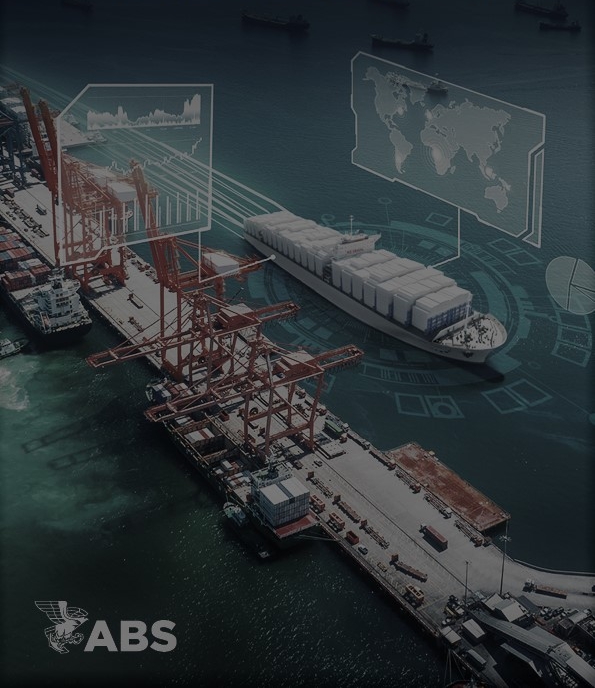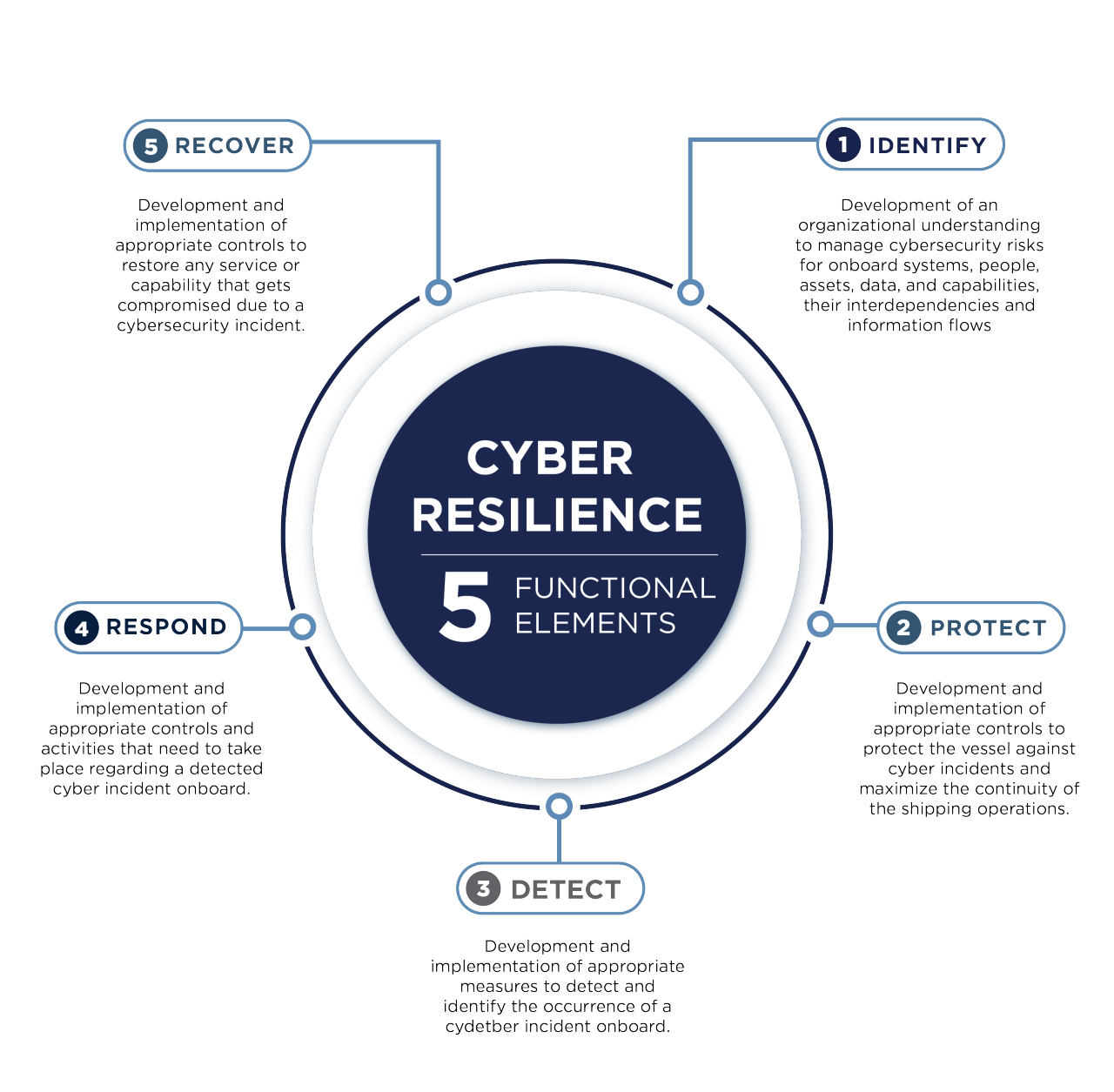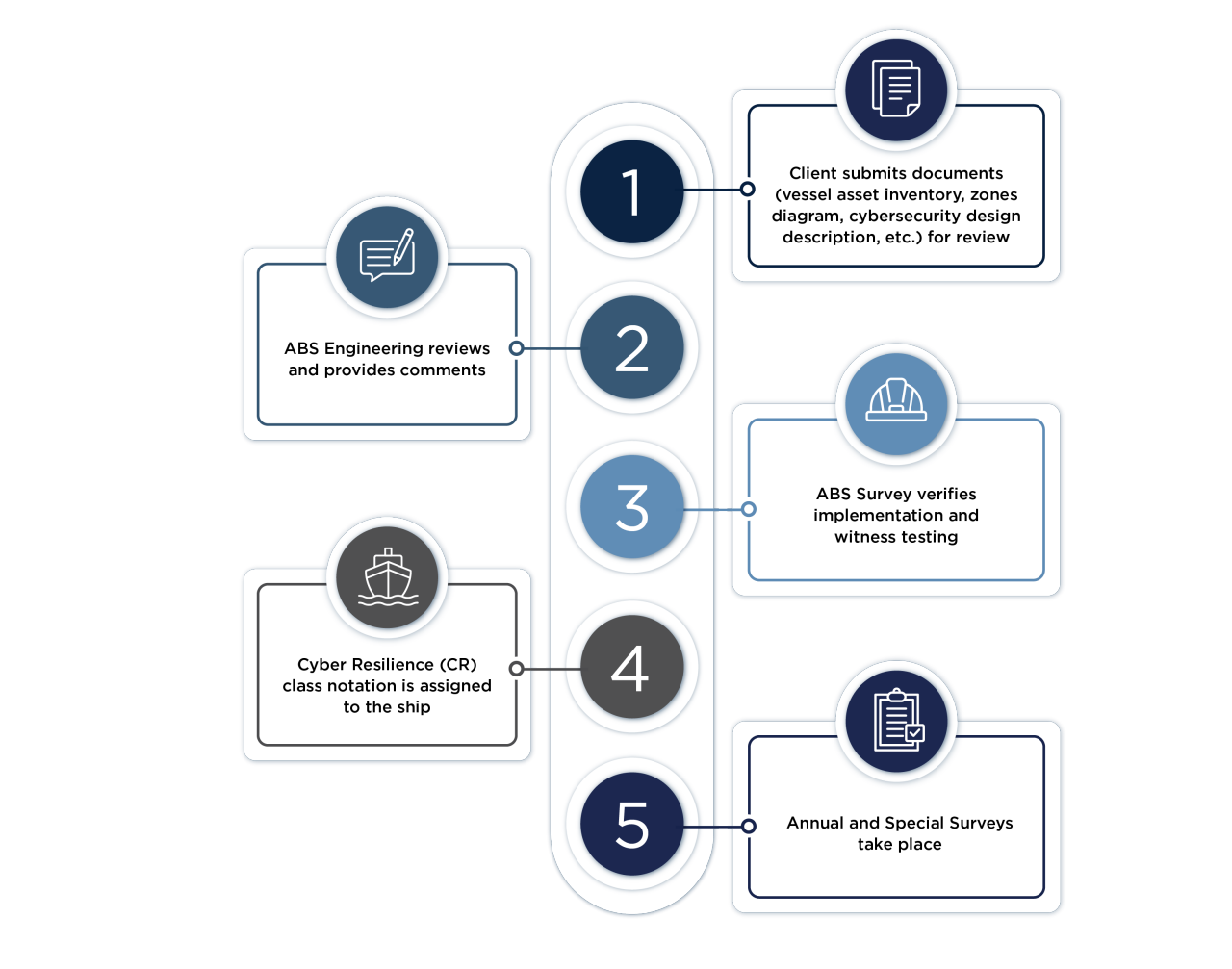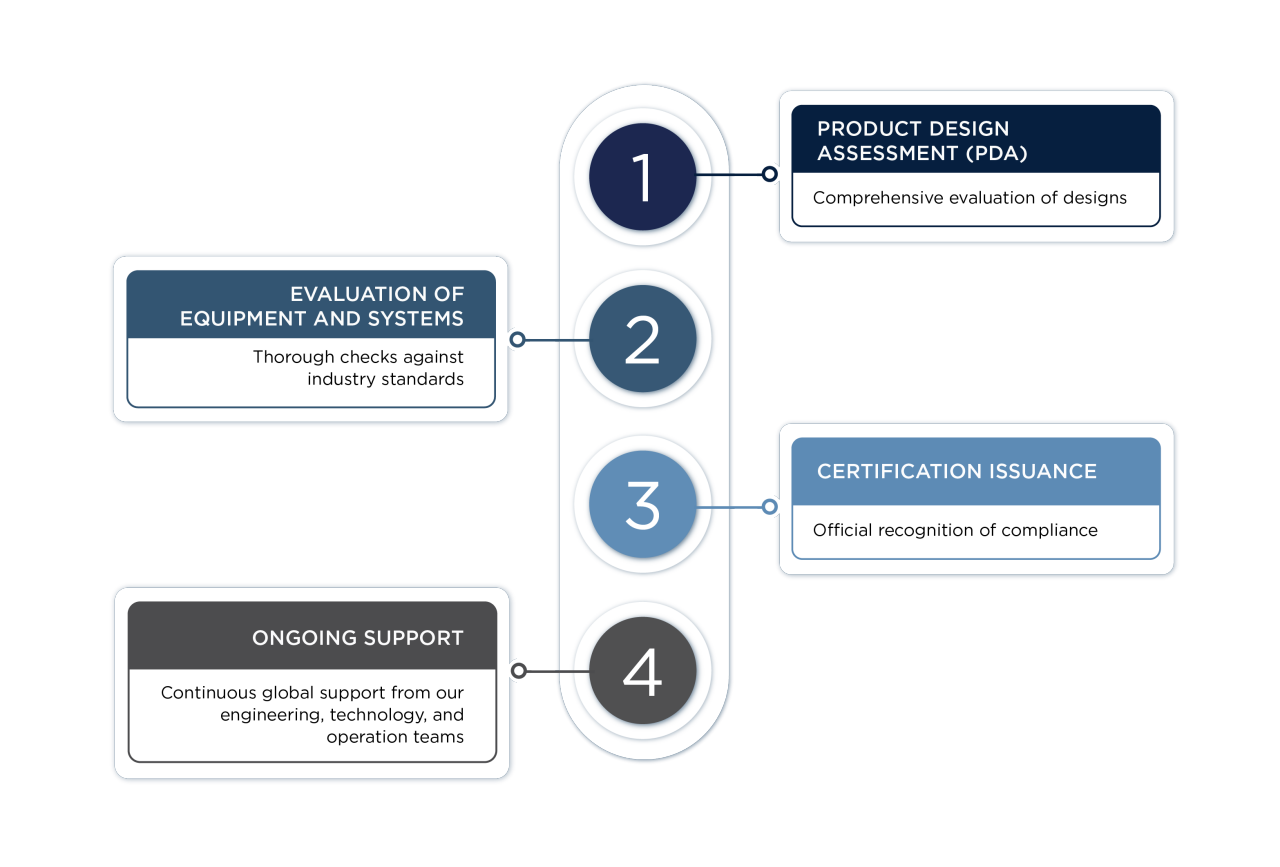Safeguarding Your Assets Against Cyber Threats
In today’s maritime environment, the interconnection of computer-based systems on vessels combined with the increased use of commercial off-the-shelf products can lead to increased possibilities of cyberattacks. Cyberattacks can affect personnel, compromise data integrity, jeopardize human and vessel safety, and even impact the environment. Within its Unified Requirements (UR) E26 and E27, the International Association of Classification Societies (IACS) has recognized the urgent need for robust cyber resilience requirements, establishing a common set of minimum functional and performance criteria to deliver a ship that can be described as cyber resilient.
Effective July 1, 2024, the URs apply to the majority of new construction vessels contracted after this date. An optional ABS CR-Ex notation for existing vessels, based on the UR E26 framework, is also available as of June 1, 2025. Both UR E26 and E27 requirements have been incorporated into the ABS Marine Vessel Rules.
UR E26 Cyber Resilience of Vessels
Overview
UR E26 on Cyber Resilience of Vessels provides a framework of minimum requirements throughout the vessel’s lifecycle. The framework begins with embedding cybersecurity in the vessel’s design and continues with ensuring secure construction practices. During commissioning, systems are verified to ensure operational security. Finally, throughout the vessel’s operational life, the cybersecurity and resilience program must be reviewed and managed. This comprehensive approach safeguards the vessel and maintains the integrity of maritime operations.
The primary goal is to support safe and secure shipping, which is operationally resilient to cyber risks. The following sub-goals for the management of cyber risk are defined in the five functional elements, in line with the National Institute of Standards and Technology (NIST) cybersecurity framework 1.0.
-
SHIPOWNERS AND OPERATORS
-
SHIPYARD FACILITIES
Shipowners and operators are central to the maritime industry, transporting goods and enabling international commerce. As reliance on digital technologies grows, enhancing cyber resilience becomes critical.
- Key Reasons for Cyber Resilience
Vessel Security: Protect against cyber threats targeting navigation and control systems
Operational Continuity: Ensure smooth sailing by minimizing disruptions from cyber incidents
Regulatory Compliance: Meet industry best practices and regulations regarding cybersecurity
Protection of Sensitive Data: Safeguard sensitive operational and cargo information
Reputation Management: Maintain customer trust by demonstrating strong cybersecurity measures
Incident Response Preparedness: Quickly address and recover from cyber incidents
Cost Efficiency: Mitigate financial losses associated with downtime and breaches
Shipyards are vital to the maritime industry, involved in the construction, maintenance, and repair of vessels. As digital systems become integral to shipbuilding, maintenance and repair, enhancing cyber resilience is essential.
- Key Reasons for Cyber Resilience
Project Security: Protect against cyber threats affecting construction and repair processes
Operational Continuity: Minimize disruptions in shipbuilding and maintenance activities
Regulatory Compliance: Adhere to cybersecurity regulations for the maritime sector
Intellectual Property Protection: Safeguard proprietary designs and technologies
Reputation Management: Build trust with clients by demonstrating robust cybersecurity practices
Incident Response Efficiency: Quickly address and recover from cyber incidents
Cost Savings: Reduce financial losses due to breaches and downtime
UR E27 Cyber Resilience of Onboard Computer-Based Systems and Equipment
Overview
UR E27 introduces minimum security capabilities for on-board systems and equipment to be considered cyber resilient. These requirements are intended for third party computer-based equipment and system suppliers.
-
SUPPLIERS
-
EQUIPMENT MANUFACTURERS
In the maritime and offshore sectors, suppliers play a crucial role in the overall cybersecurity landscape. Enhancing cyber resilience among suppliers is crucial for mitigating risks, ensuring operational continuity, and maintaining trust in the supply chain.
- Key Reasons for Supplier Cyber Resilience
Interconnected Systems: Supplier vulnerabilities can compromise entire networks
Risk Mitigation: Strong defenses reduce operational disruptions and financial losses
Regulatory Compliance: Meeting cybersecurity regulations involves assessing supplier security
Trust and Reputation: Breaches can damage reputation and customer trust
Protection of Intellectual Property: Robust measures safeguard sensitive data
Adaptation to Emerging Threats: Resilient suppliers can better respond to evolving cyber threats
- Equipment Manufacturer Cyber Resilience
Compliance: Adhere to industry regulations and standards
Protect Intellectual Property: Secure valuable designs and technologies
Customer Trust: Maintain confidence in product security
Adaptability: Evolve cybersecurity measures with market demands
Operational Efficiency: Minimize costly downtime from incidents
Benefits of ABS Approval and Certification
Achieving ABS approval and certification signifies your commitment to cybersecurity and demonstrates to your customers that your equipment and systems are fully compliant with established IACS and ABS resilience requirements.
Our Solution
ABS has developed a comprehensive Cyber Resilience Program that identifies and implements the necessary cyber resilience capabilities to enhance on-board security of computer-based systems and equipment. By aligning with IACS UR E26 and E27, our program offers a pathway to compliance that can ultimately benefit your competitive edge.
Expertise: Leverage our deep expertise in maritime cyber resilience and regulatory compliance standards.
Support: Receive tailored support and guidance at every step of the certification process.
Reputation: Enhance your brand’s credibility by adhering to globally recognized standards.
Vessel Cyber Class Notation
Equipment and Systems Certification Process Overview
ABS Consulting
To further support compliance with IACS requirements, ABS’ affiliate company, ABS Consulting, offers consulting, implementation support and risk managements services. ABS Consulting recognizes the unique challenges shipyards, designers, and suppliers face in meeting IACS cyber regulations during vessel development and construction.
Whether you’re in the initial concept and design stages or integrating cybersecurity into ongoing projects, the ABS Consulting team supports you in embedding effective controls and best practices throughout the shipbuilding process. ABS Consulting works with you to identify the compliance requirements and security metrics that matter most to your operations, establishing a clear framework to track progress and demonstrate results from a shipbuilding and supply chain perspective.
Learn more by clicking here.





































